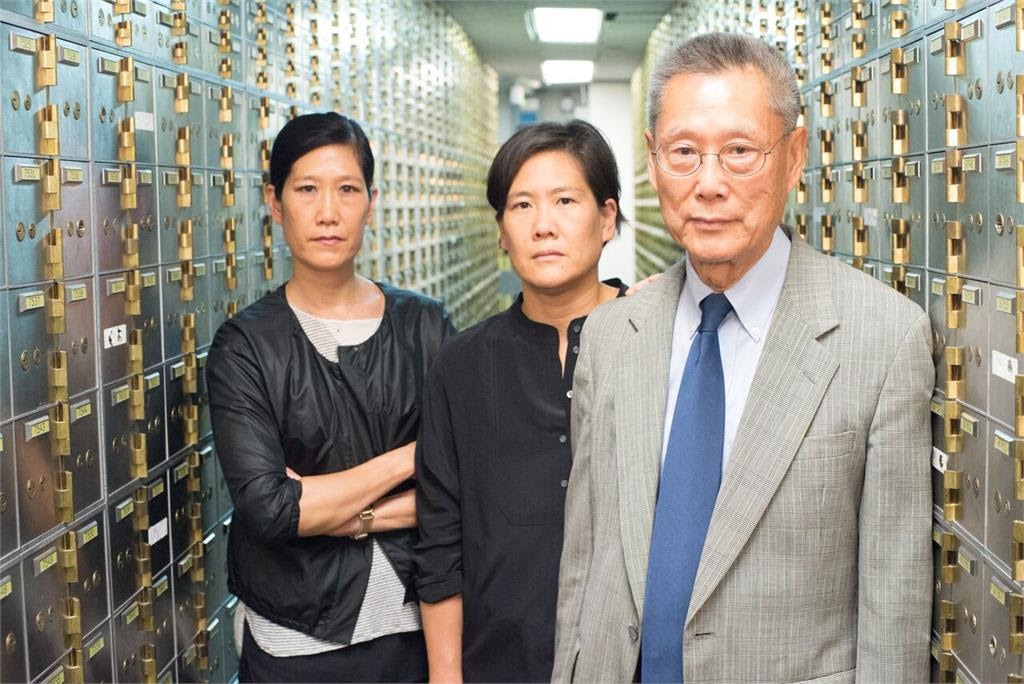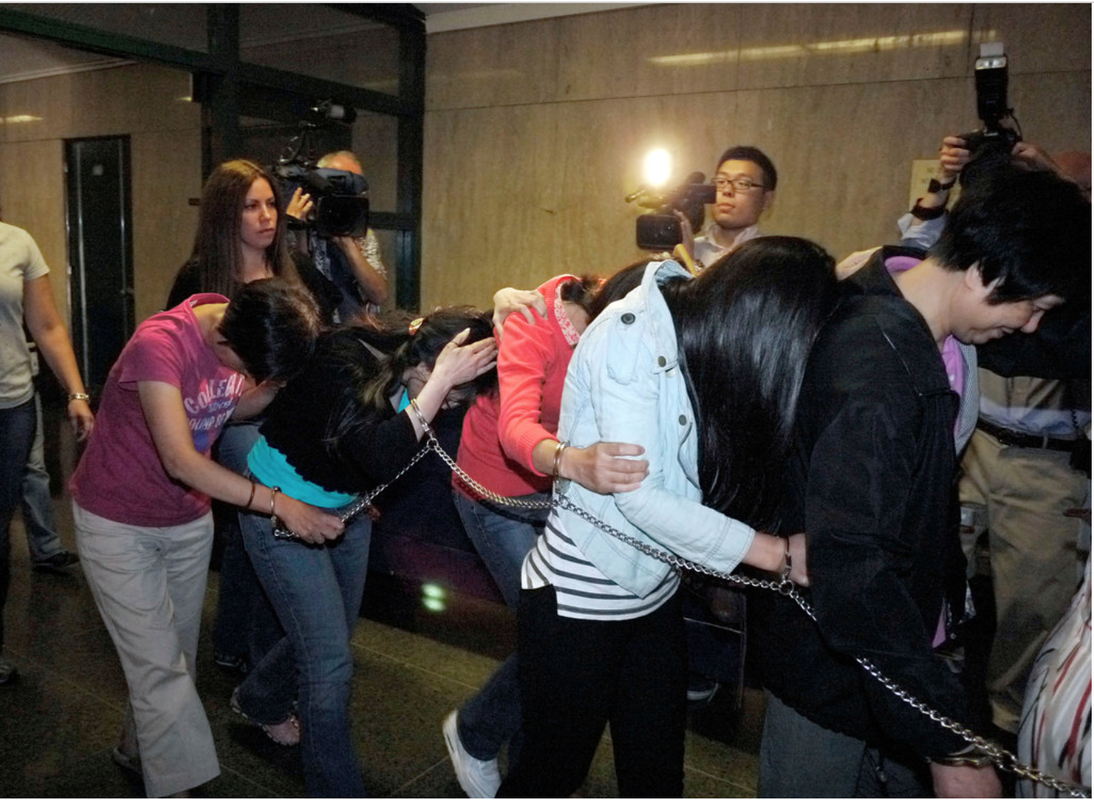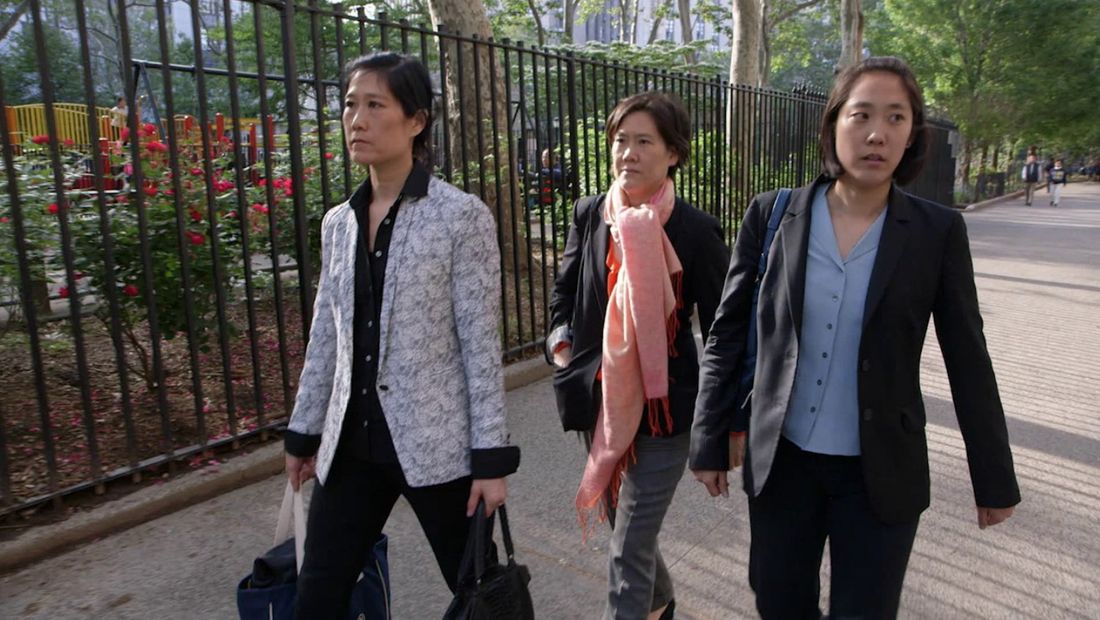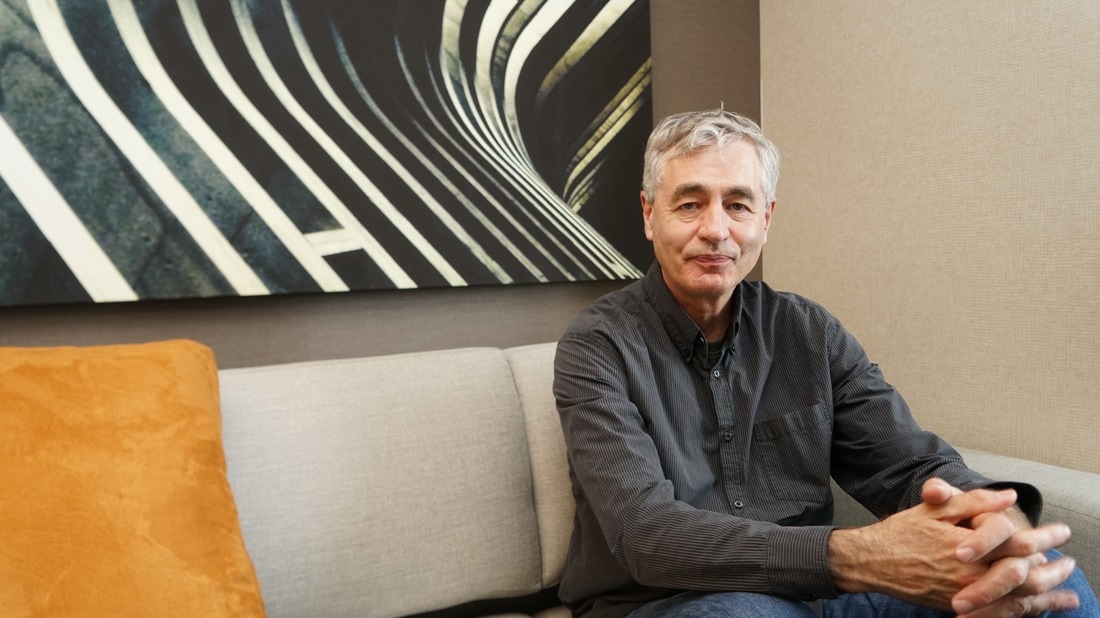|
Steve James' ABACUS focuses on Chinese-American owned bank -- lone lender to face criminal prosecution in the 2008 financial crisis The 2008 financial crisis proved nearly catastrophic to the American economy. Yet none of the major banking institutions at the center of it -- Wells-Fargo, Bank of America, Goldman Sachs, JP Morgan Chase and Citigroup among them -- ever faced criminal prosecution. They got a pass for being "too big to fail." In fact, the only criminal indictment to come out of the financial disaster hit Abacus, a bank catering to the Chinese immigrant community in New York, that -- compared to a Wells-Fargo or Citigroup -- was microscopic. Steve James' new documentary ABACUS: Small Enough to Jail, tells the story of that prosecution and the Sung family, owners of the bank, who squared off against the Manhattan District Attorney's office. [ABACUS is now playing in New York, Los Angeles, and San Francisco. It opens in Washington D.C., Chicago, Boston, and other cities in the coming days and weeks. Details here]. I think there was racism involved. I don't think it was overt and explicit. James told Nonfictionfilm.com he didn't plan to take on the project because he was busy working on something else. And from a filmmaking point of view there were significant challenges. "It became clear we weren't going to be allowed to be in the courtroom and we weren't going to get some of the kind of access I would have loved to have had to the defense team and the prosecution during the trial," he said. Nonetheless, after spending time with Thomas Sung, the founder of the bank, his wife and four daughters -- including bank president Jill Sung -- he decided to push forward. "The family is so compelling and what they're going through is so amazing, [I thought], let's just go for it." The Abacus case had more gray in it than an AARP convention. The bank conceded fraud had been committed by a loan officer who doctored mortgage applications to qualify borrowers. But it was the bank itself that uncovered the fraud, and essentially invited police to investigate. "I think the Sungs were appalled to find out what [the loan officer] was doing. They were appalled to see that there were some irregularities going on," James commented. "{The Sungs] weren't complicit, they weren't endorsing it, they weren't encouraging it at all. To kind of put a bank on trial for what went on there is the equivalent of trying to prosecute someone for jaywalking." Abacus was actually a conservative lending institution -- a model of probity compared to outfits like IndyMac and Countrywide that approved countless loans based on falsified applications. "Abacus' default rate is one-twentieth of the national average, James noted. "Nine out of 3,000 loans during the indictment period [defaulted], which constitutes one of the lowest default rates of any bank in the United States." So why was the bank prosecuted? The film suggests it was a case of selective prosecution by Manhattan District Attorney Cyrus Vance Jr. "The [DA] would say, 'We saw fraud and we went after it. Period. That's all this was about.' To this day, despite the verdict, they believe that they were right, that the verdict was wrong," James told Nonfictionfilm.com. "I think that Cyrus Vance Jr., his ambition to be the D.A. who prosecuted a bank connected to the 2008 crisis, was significant to him. It's kind of all over the press conference of the announcement of the indictment... He talks about this being the first indictment brought against a bank since 1991. He directly links the alleged fraud at Abacus to the 2008 crisis. He then paraded these defendants down the hallway in chains for low-level bank fraud." James and his producers convinced Vance to agree to an interview for the film. He responded to allegations the indictment reflected bias against the Chinese-American defendants. "Vance says, 'I don't think we treated this bank any differently than we would an Indian bank or a South American bank,' which is a very interesting answer. It's like, okay, but not a 'white' bank?" To James there was clear ethnic bias at play. "I think there was racism involved. I don't think it was overt and explicit and 'I'm going after the Chinese-American community,' but I can't help but think that part of what went into his calculation, since he is an elected official, is that the Chinese community in New York does not vote." Cultural issues suffuse the case. Thomas Sung said he created Abacus in the 1980s because people in the Chinese immigrant community in New York couldn't get loans. "Banks at that time wanted Chinese depositors, but not borrowers," he has said. On paper, loan applicants may have seemed to lack sufficient income to secure loans. However, members of the community were known for harboring "off the books" money, sometimes stored in safety deposit boxes. In addition, the community's insularity left it without much political clout to counter a suspect prosecution. In the case of the Sungs, they had the personal wealth to fight back. "They were going to spend their own money, to the tune of 10 million dollars to do it, if that's what it took, to defend themselves," James stated. James said he is aware the Sungs are not the kind of people who typically evoke sympathy in an audience -- a family of considerable means who control a bank.
"People have expressed surprise that the David in the David and Goliath story here is the bank. And yes, the Sungs are wealthy by any measure -- they're not Bank of America president wealthy, but they're wealthy," he said. "One of the things that's great about this story, I think, is they were in a position to defend themselves and vigorously defend themselves... The sad fact is that most people who are wrongly prosecuted in this country are not the Sungs and don't have that ability and so they are often faced with pleading guilty to things that they don't think they are guilty of because they feel like they have no choice." He added, "Not all rich people are bad... In this case the Sungs had the ability to fight back, and they did. And thank god they did." |
AuthorMatthew Carey is a documentary filmmaker and journalist. His work has appeared on Deadline.com, CNN, CNN.com, TheWrap.com, NBCNews.com and in Documentary magazine. |
- Home
- News
- Videos
-
Galleries
- 2019 Tribeca Film Festival
- Full Frame Documentary Film Festival
- 2019 SXSW Film Festival
- SXSW 2018 Gallery
- 2019 Sundance Film Festival
- Outfest 2018 Photo Gallery
- Outfest 2017
- Sundance 2018 Photos
- 2017 LA Film Festival
- 2017 Cannes Film Festival
- Tribeca Film Festival 2017
- SXSW 2017 Gallery
- 2017 Berlin Film Festival
- Sundance 2017 Gallery
- 2016 Los Angeles Film Festival
- Cannes Film Festival 2016
- SXSW 2016 Gallery
- Berlinale 2016 Gallery
- Sundance 2016 Gallery
- Filmmaker Gallery
- About
- Contact
Proudly powered by Weebly
- Home
- News
- Videos
-
Galleries
- 2019 Tribeca Film Festival
- Full Frame Documentary Film Festival
- 2019 SXSW Film Festival
- SXSW 2018 Gallery
- 2019 Sundance Film Festival
- Outfest 2018 Photo Gallery
- Outfest 2017
- Sundance 2018 Photos
- 2017 LA Film Festival
- 2017 Cannes Film Festival
- Tribeca Film Festival 2017
- SXSW 2017 Gallery
- 2017 Berlin Film Festival
- Sundance 2017 Gallery
- 2016 Los Angeles Film Festival
- Cannes Film Festival 2016
- SXSW 2016 Gallery
- Berlinale 2016 Gallery
- Sundance 2016 Gallery
- Filmmaker Gallery
- About
- Contact





 RSS Feed
RSS Feed